Virtimo Publication Framework.
The extensive transparency data solution for energy suppliers.
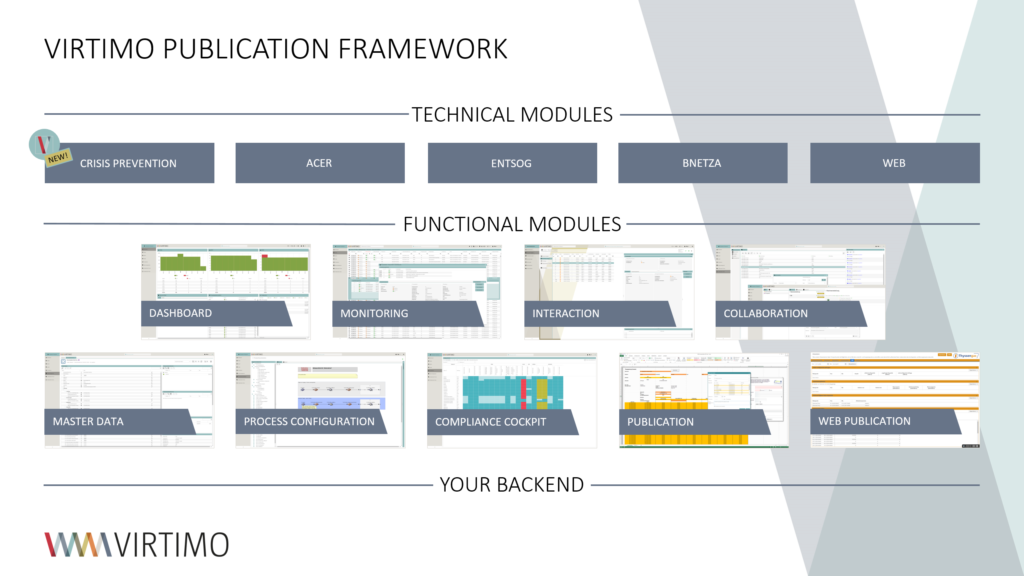
Powerful solution,
Ready-made modules,
Quick to use.
Implementation of all legal
Publication requirements,
Compliance with various
External and internal
Reporting obligations!
Dashboard
Providing a convenient monitoring and control interface is one of the most important features in supporting business process monitoring for everyday use.
For this task, the Publication Framework contains dashboards which offer a quick overview of all processes and their statuses. The Dashboard and the respective monitoring functions have their technological basis in the Business Process Center, so that an integration of further functionalities can be provided on this basis – for example for market communication.
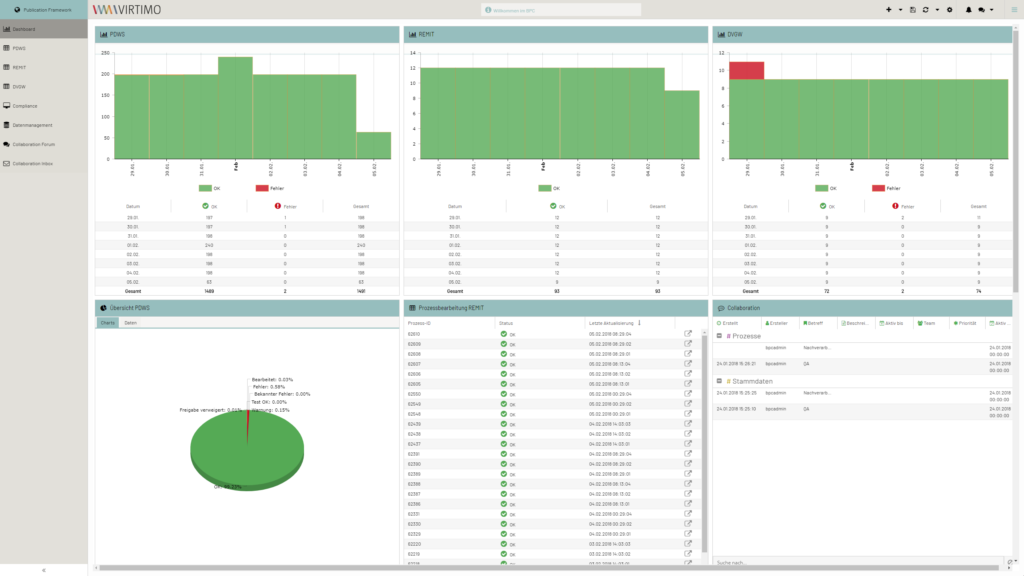
Monitoring
Starting from the Dashboard, it is possible to drill down directly to the process details of the individual publication processes in order to gain a quick overview of particular processes, e.g. all processes with the status “Warning” today. The drill-down draws up the respective Monitoring view, in which numerous analysis options (display of publication information, display of data to be transferred) are available in addition to comprehensive search, filter and sorting features. In the event of errors or alerts, treatment (e.g. renewed processing) can be initiated right in the Monitoring module.
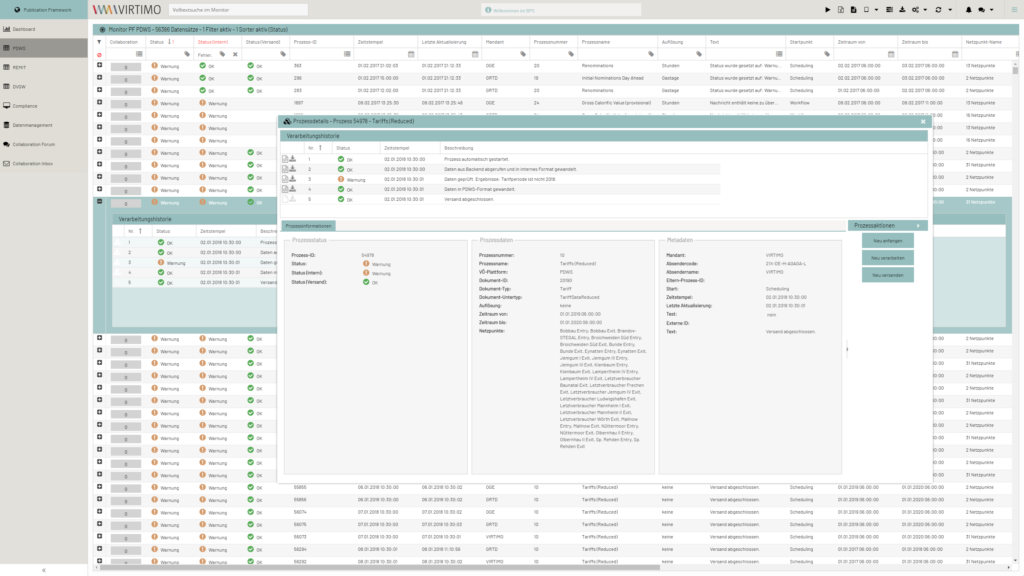
Complementing the tabular view, the Publication Framework’s Monitoring also includes an expanded analysis option – the detail view. Besides presenting detailed process information, the detail view offers particularly convenient options for displaying the reported data (e.g. in XML format, with highlighted syntax). The process detail view can be drawn up directly from the display of process information in Monitoring.
Another part of the Monitoring module is the integrated option to launch publication processes, e.g. to retrieve the capacity contracts of a certain period and transmit them to ACER, or to report an Urgent Market Message.
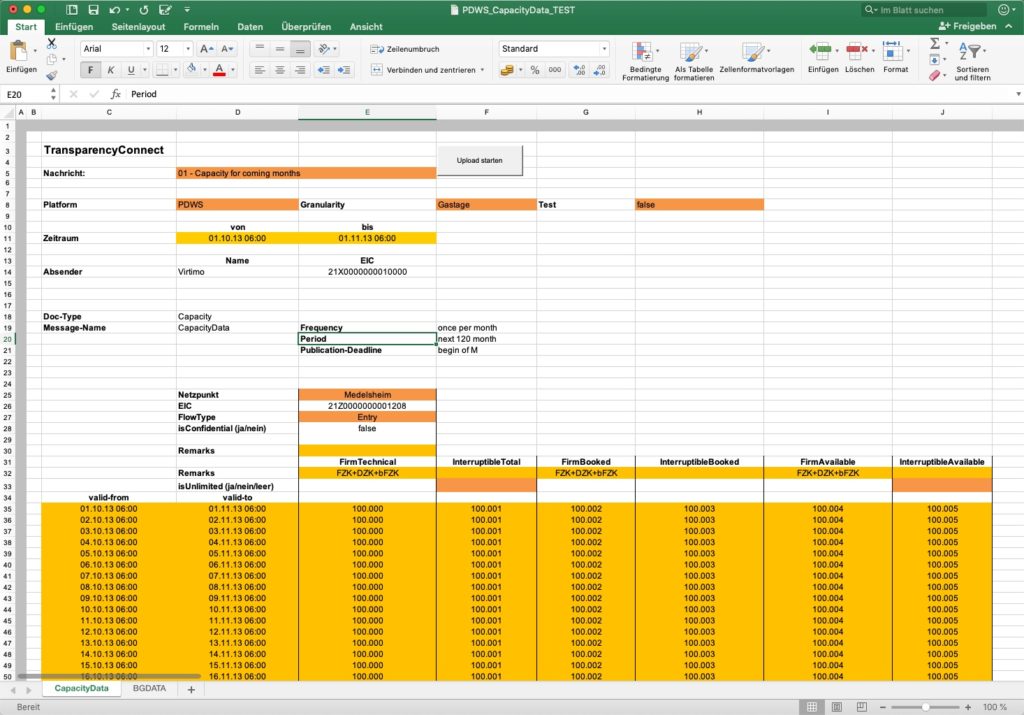
In addition to launching processes from the web interface, the Publication Framework offers the option to initiate processes which include manually recorded data (hence without a retrieval of time series or contracts from the back-end). This can be done on the basis of Excel templates which are directly provided by the Publication Framework for any process type. Initiation is done via Excel-integrated functions which transmit the data into the Publication Framework’s publication processes.
Master Data
The Publication Framework contains its own module for the management of relevant master data for publication processes. This comprises client master data (e.g. EI code) as well as publication-relevant network nodes, including their configuration. Moreover, examination rules and their configuration are managed in the Master Data module. These are part of the business plausibility checks which are summarised and visualised in the Compliance Cockpit.
In order to minimise maintenance effort, the Publication Framework offers inheritance functions to transfer the same parameterisations directly to all linked master data.
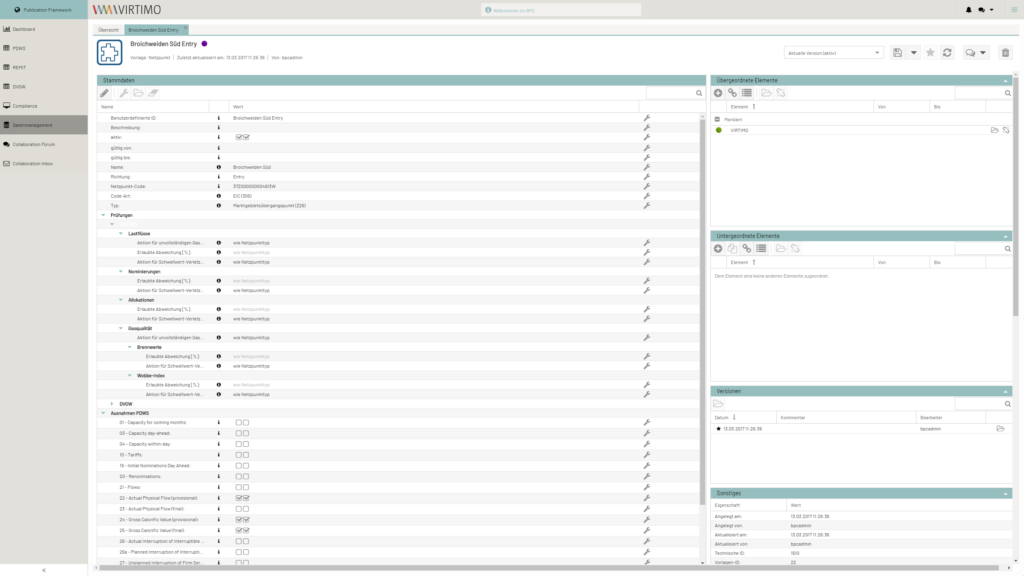
Compliance Cockpit
The Dashboard and Monitoring functions described pertain to the supervision of process execution.
They provide a very good overview of all launched publication processes and their current statuses. To enable content monitoring of the processes, the Publication Framework contains another cockpit, the Compliance module. This module presents the planned processes for each particular object and provides and overview of the current execution status.
The Compliance Cockpit thus enables supervision over the completeness and correctness of all processing. In addition, the Compliance Cockpit makes it possible to check the external processing status (e.g. of ENTSOG), compare it with internal processes and easily identify potential deviations.
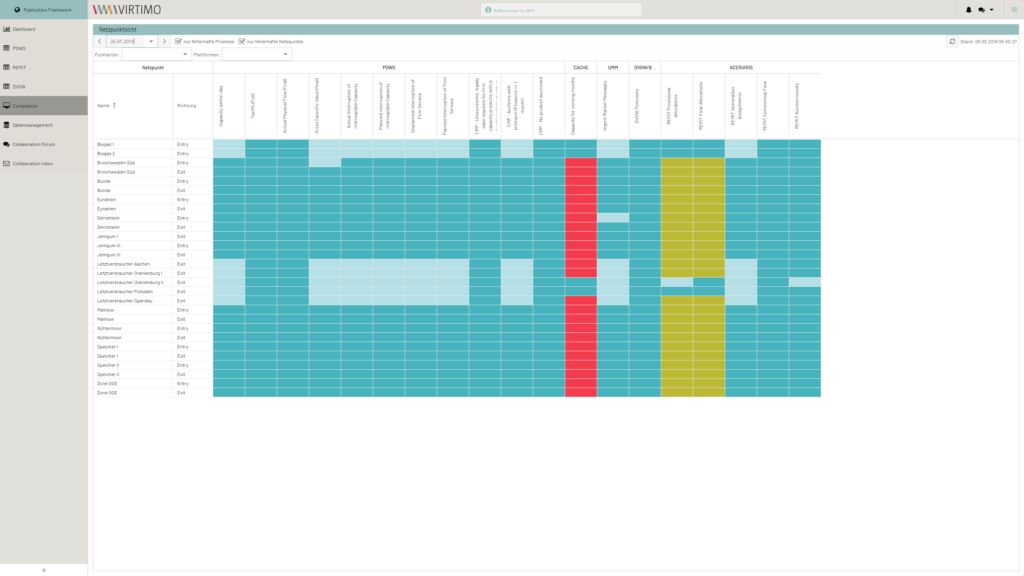
Web publication
The Web Publication module enables direct compliance with publication requirements on your own website. As a default component, is easy to integrate and contains all required interfaces and flexible configuration options for customisation according to your individual needs.
In addition, the Web Publication module contains integrated data storage, e.g. for temporarily storing retrieved data from the back-end. This relieves the back-ends of data calls from the website and simultaneously guarantees high-performance data provision on the website.
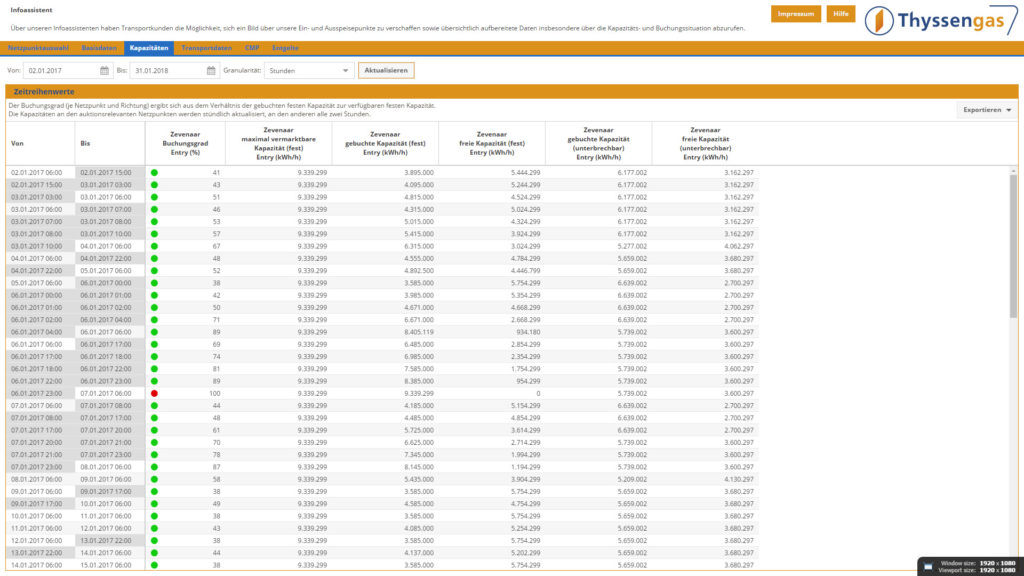
We provide answers.
Your contact at Virtimo.

Dirk Breitkreuz
Board Member
Virtimo AG


